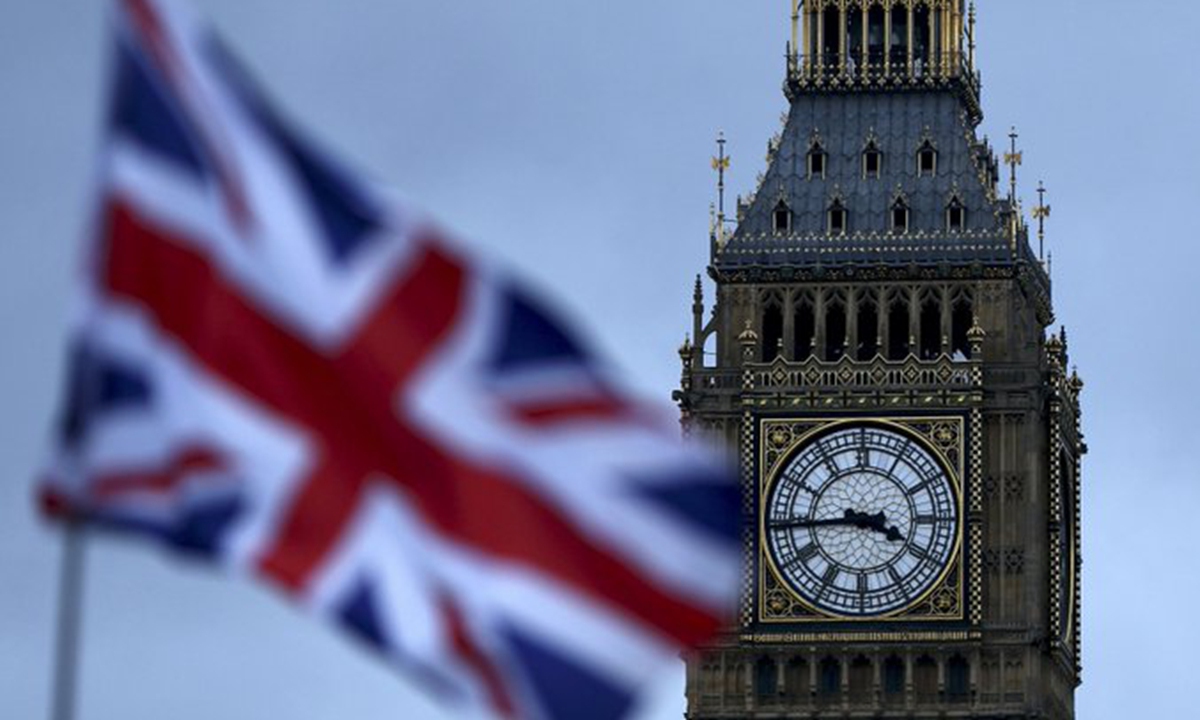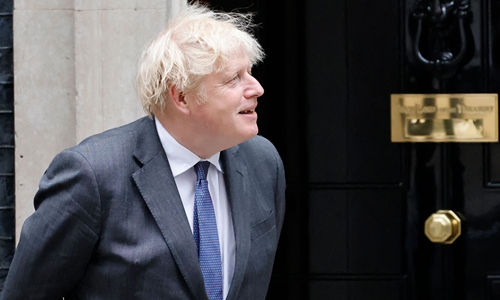
Photo: Xinhua
While it is commendable that the UK has made progress in expanding its "circle of friends" for economic and trade cooperation, the potential trade benefits are limited compared with its need to boost a domestic economy that has been seriously hit by both Brexit and the pandemic.The UK and Australia signed a free trade deal, the first deal negotiated from scratch since the UK left the EU, according to a press release published on the official UK government website on Friday.
The new deal is expected to add bilateral trade by over 10 billion pounds ($13.3 billion) in the long run, and could represent a major step in its accession to the Comprehensive and Progressive Agreement for Trans-Pacific Partnership (CPTPP).
Although both the Johnson and Morrison governments have spoken highly of the free trade deal, it still cannot blur the fact that Australia is a small UK trading partner, accounting for 1.7 percent of UK exports and 0.7 percent of UK imports. So the deal is unlikely to offer much help to the UK, not to mention the concerns shared by UK farmers that they could be hurt by cheaper imports of agricultural products from Australia as a result of the new deal.
Of course, the deal with Australia is part of the UK's efforts to formulate its own trade network outside the EU. Over past years, the UK signed a free trade agreement with Japan and reached an agreement in principle with New Zealand.
Yet, potential trade and investment benefits from the group of developed trading partners are relatively small compared with what the UK economy needs right now, a considerable gap that may remind people of hopes that China and the UK used to have for a bilateral free trade agreement.
Due to the confluence of Brexit and the pandemic, the UK economy has been facing bumps on the road to recovery. The UK economy rebounded strongly from a sharp slump in 2020 earlier this year before the recovery slowed in recent months, with its GDP growing at a tepid 0.1 percent in October. From inflation to energy crisis, every economic headache it has encountered underscores the need for the UK to find a new growth path independent of the EU. And strengthening economic cooperation with China, a large-scale trading partner and a potential massive market, is one obvious option.
While the UK is not currently seeking a free trade deal with China due to political tensions over Hong Kong-related affairs and its strategy to follow the US lead to politicize China-related issues, it is undeniable that it still has a huge need for cooperation with China.
According to data from Chinese customs, trade between China and the UK grew 23.6 percent year-on-year during the first 11 months of this year, with imports from the UK up by 29.3 percent.
In fact, China does not pose any threat to the UK's security and there is no real competition for power between the two nations. China-UK trade is beneficial to both sides, therefore China has always attached great importance to trade with Britain in the hope of developing bilateral trade.
It would be regrettable if the UK continues to prioritize ideological differences over economic interests. After all, judging whether the UK can really establish a trade network independent of the EU and lift its economy out of the current pitfall largely lies in whether it can forge closer economic ties with China.



